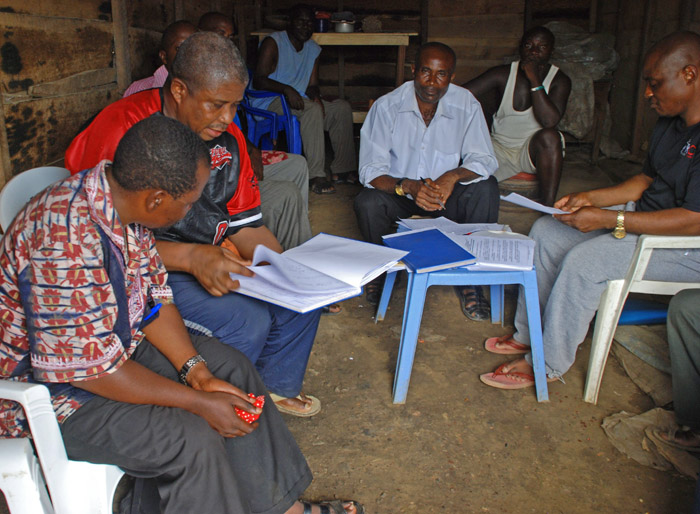
Some have criticized the Enough Project’s advocacy on conflict minerals in the Congo as unintentionally destroying the livelihoods of artisanal miners. Critics say our efforts to promote regulation of the trade in minerals and to cut out abusive armed groups will result in a de facto embargo of Congo minerals and eliminate jobs in the mining sector.
This conclusion, though, is based on a false premise; there actually aren’t any “jobs” to be eliminated in eastern Congo’s artisanal mines. Those working in the mines are essentially slaves with no real “livelihood” to lose. As confirmed by local civil society representatives I met with on a recent trip to eastern Congo, those working in the mines, including many children, labor in terrible conditions and are barely surviving. In some cases, they walk day and night carrying heavy loads for long periods without rest. If they become ill they have no access to any health care; many of the young women in the mining areas are forced into prostitution as the only means of survival. In some technical sense these Congolese may not be “slaves” since they are not held by force and work at the mines “voluntarily.” But in a real sense they have no choice. As a local civil society leader told me, they have only this decision: “Be a slave or die.”
Of course, in the short term the local miners have no good alternatives and without being able to work in the mines their families suffer real hardship. That’s why Enough supports industry and government efforts to mitigate their situation and work toward the creation of alternative livelihoods. In the longer term, only real reform of the mining sector to allow for jobs with good working conditions and acceptable compensation will fully address the needs of the local population.
The courageous men I met with from the support group for traceability and transparency in the management of natural resources are committed to reforming the mining sector and creating alternative livelihoods for the local population. They have been harassed and threatened by local officials aligned with those groups now profiting from the mines in the Walikale region they come from. But they have a vision of a return to more equitable society that sustains them. Before Congo’s wars devastated the region and the scramble for minerals came to dominate the economy, these people had a stable and sustainable agricultural way of life. One civil society leader recounted with pride how his family had been rich years ago, with a herd of 12 cows. Now his relatives have been reduced to de facto slavery in the mines of Walikale.
The land that the citizens of Walikale used to support themselves has been gradually acquired by mining interests. According to the civil society representatives, this was the result of a process in which traditional chiefs were tricked or bribed out of their claims to the land. They now worry that the future of their community has been destroyed by the impact of the mines on the children. And they fear that some day the minerals will run out leaving them without even that means of survival. They believe that only a change in the mentality of the people and in the attitude of government can set them on a path to get out of the mines and into alternative livelihoods, primarily in farming and animal breeding.
These activists have put themselves at risk by speaking out for reform in the minerals trade. In March, in a public speech in front of 200 people the mayor of Goma issued a warning to civil society: "I will ask the government to track down and sanction everyone who was behind these negative statements," he said, referring to letters by local NGOs calling for the U.S. State Department to oppose efforts by mining operators to delay new U.S. regulations on minerals from Congo. So far that threat has not been carried out.
But the question arises: Why would these activists be out on the front lines calling for change if they were destroying their own families’ livelihoods? They speak and act with the committed passion of advocates working for their people’s freedom. They want an end to the slavery in the mines of Walikale. And they are in full support of the Enough Project’s work to raise awareness of their situation globally and to reform the mining sector through an international certification process.
Photo: Miners, all members of a cooperative in Walikale, sit in their office in the trading town of Mubi. They showed Enough the records they have started to keep to track the sources of their minerals. (Enough/Laura Heaton)

